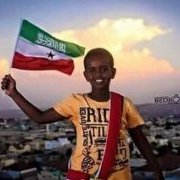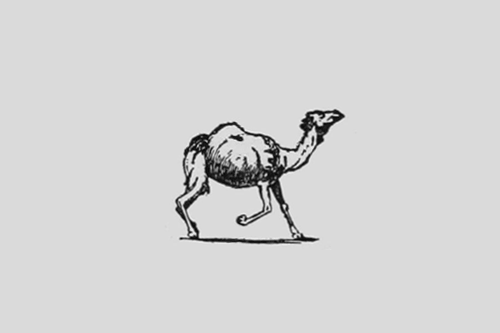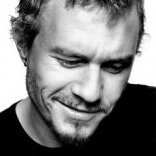By
Goosaar15
Somalia intii ka dambaysay burburkii dawladii dhexe ee Somalia 1991 kii waxa markii ugu horeysay dawlad loogu soo dhisay dalka Djibouti gaar ahaan magaalada Carta, waxaana lagu soo doortay Cabdiqaasim Salaad Xasan sanadkii 2000.
Magaalada Muqdisho xiligaasi waxa haystay hogaamiye kooxeedyo hubeysan oo mid waliba jufadiisa hor fadhiyo isuna qabo in uu madaxwayne yahay, waxa kale oo soo labaynayey kooxaha xoogaga maxaakiimta oo hubaysnaa ahaana awood qarsoon oo soo kobcaysa.
Magaalada Muqdisho markii uu ka degay Madaxwayne Cabdi Qaasim Salaad Xasan ( 2000 ilaa 2004 ) waxa ku soo dhaweeyey xoogagaa hubaysan ee markii dambe isku badelay maxaakiimtii islaamiga ahaa, Al-shabab iyo Xisbul Islam, waxa sidoo kale dawladaasi oo dhaafi wayday Hutel Ramadan Muqdisho taageeray laba sadex hogaamiye kooxeed walow aanay awood lahayn .
Xukuumada madaxwayne Cabdi Qaasim waxa ay yeelatay laba Raisal wasaare oo kala ahaa 1-Cali khaliif Galaydh, 2- Xasan Abshir Farax labadaba Alle ha u naxariisto e, waxaana ka hor yimid markiiba dalka Ethiopia iyaga oo ka cabsi qabay urur diimeedyada faraha badan ee awood doon ka ah in uu ka soo jeedo, gaar ahaan ikhwaanu muslimiin oo saldhigeedu yahay Egypt, waxaana ay xukuumadaasi qaadi kari wayday hal talaabo oo yagleel dawladnimo oo rasmi ah.
Waxa ku xigtay xukuumadii uu gadhwadeenka ka ahaa madaxwayne Cabdilaahi Yuusuf Axmed (2004 ilaa 2008 ) Alle ha u naxariisto e oo iyada lagu xamanayey in Ethiopia wadato, waxaana lagu soo dhisay magaalada Embaghati ee dalka Kenya sanadkii 2004 .
Xukuumadaasi waxa ay degtay Baydhabo oo ay ciidamo ku urursatay ay ka mid yihiin ciidankii maamul goboleedka Puntland oo uu Cabdilaahi Yusuf madaxwayne hore uga ahaan jirey iyo ciidamo Ethiopian ah oo badan, waxa Raisal wasaare ka ahaa Cali Maxamed Geedi, halka uu wasiirka arimaha guduhuna ahaa Xuseen Maxamed Faarax Caydiid.
Dawladii Cabdilaahi Yuusuf hogaaminayey xoog iyo dagaal ayey ku tagtay Villa Somalia, waxaana dhacay dagaalo lagu hoobtay, dawlada Cabdilaahi Yuusuf waxa mus dambeed u ahaa dawlada Ethiopia sidaasi darteed ayey uga hor yimaadeen xoogaga islaamiyiinta ah, waxa kale oo ka hor yimid dadka deegaanka Muqdisho qaybo ka mid ah.
Waxa dhacay dagaalo culus oo lagaga soo horjeeday in ciidamada Ethiopia Somalia soo galaan maadaama ay yihiin dal ay Somalia cadaawad soo jireen ahi ka dhaxaysay, dagaalkani oo markii dambe ujeedooyin kale yeeshay oo ay ururo argagixiso oo dano kale lihi dhex galeen, waxaa sameysmay mucaarid xoogan oo dal iyo dibad ba isaga yimid oo Asmara isku urursaday oo wadaado iyo siyaasiyiin ba isugu jira.
Waxa is khilaafay Cabdilaahi Yuusuf iyo Cali Maxamed Geedi oo Raisal wasaare ahaa waxaana noqday oo uu Raisal wasaare ka dhigtay madaxwayne Cabdilaahi yuusuf, Nuur Xasan Xuseen ( Nuur Cade ) oo ay markii dambe is qabteen iyo Cabdilaahi Yuusuf oo loo arkay nin wada aargoosi siyaasadeed oo Ethiopia iska hor yimaadeen, markiiba caalamku cadaadis ku saareen in uu talada wareejiyo.
Waxaa xigtay in la dhisay dawlad ay ku mideysan yihiin maxaakiimtii islaamiga ahaa oo uu la heshiiyeen maraykanka iyo dawladihii danaynayey arimaha Somalia xiligaasi waxaana lala hadashiiyey intii ka soo hadhay dawladii Cabdilaahi Yusuf oo uu Nuur Cade hogaaminayo waxa la dhisay dawlad ku meelgaadh ah oo wadata baarlamaan ka kooban laba baarlamaan oo la isku daray oo uu hogaaminayo Sheekh Shariif waxaana lagu dhisay dalka Djibouti caasimadiisa Djibouti 2009.
Xukuumada uu madaxwayne Shariif hogaaminayey (2009 ilaa 2012 ) waxa ay fursad u heshay in ay haykalkii dawladnimo dhisto, diyaariso nidaam dalka Somalia kumeelgaadhka lagaga saarayo, waxaa hawlahaa gadhwadeen ka ahaa Raisal wasaare Maxamed Cabdilaahi Farmaajo oo ku helay sumcad badan iyo Xukuumadiisii la odhan jirey ( TAYO ) .
Murug iyo isqabsi dhacay ka dib waxa heshiis Kampala lagu gaadhay in Farmaajo iyo xukuumadiisa la rido oo xiligaasi faro baas ku haysay kooxaha argagixisada iyada oo dan loo arkay markaasi cid wadatayba, waxaana heshiiskaa Kampala Accord aqbalay Maxamed Cabdilaahi Farmaajo oo sidaa kaga tagey xilkii, xukuumadiisiina dhacday.
Waxa kale oo Maamulka Sheekh Shariif iyo sadexdii Raisal wasaare ee kala dambeeyey diyaariyeen hab federal ah in dawladnimada Somalia loo badelo oo maamul goboleedyo la dhiso waxaana la iskula qaatay shirarkii Garoowe 1 iyo Garoowe 2 oo mudo kooban ka horeeyey shirkii London ee dib u dhiska Somalia 2012 oo 52 dawladood oo aduunka ahi ka soo qayb galeen.
Shirkii London 2012 waxa uu ahaa shirkii ugu horeeyey ee Somaliland iyo Somalia kawada qayb galaan waxaana ku jirey oo ahaa shirarkaasi communique keegii 26 qodob ahaa qodobkiisa 6aad in beesha caalamku adkaynayso in xukuumada ku meelgaadhka ah ee Somalia iyo kuwa ka dambeeyaa wada hadal la furaan Somaliland .
Waxa ku xigtay xukuumadii uu hogaaminayey Xasan Sheekh Maxamuud (2012 ilaa 2017 ) oo raacaysay qariirdadii Garowe 2 ( Garoowe Two Roadmap ) oo ahaa hirgalinta nidaamka maamul goboleedyada ( federal system) iyo qodobadii ka soo baxay shirkii London 2012 ee dib u dhiska Somalia oo ugu weynaa qodobka wadahadalada Somaliland iyo Somalia, Ethiopia waxa loo arkayey cida dabada ka riixaysa nidaankan ee qorshaheega lagu socdo.
Xiligaasi xukuumada madaxwayne Xasan Sheekh Maxamuud waxa abuurnayd qadiyad Ethiopia diid ah oo loo arkayey in talada Somalia ay Addis-Ababa faraha kula jirto waxaana si gaar ah saameyn u lahaa General Gabre oo qaabilsanaa arimaha Somalia oo Muqdisho fadhiyey, sidoo kale ciidamada Ethiopia iyo Amisom na taladooda wax weyn ku lahaa.
Madaxweynihii xigey waxa uu noqday Maxamed Cabdilaahi Farmaajo ( 2017 ilaa hadda 2021 ) fadhiya oo ku ololeeyey in aanay aheyn wax la aqbali karo in Ethiopia Somalia dhexdeeda ka taliso waxaana uu ku helay taageero iyo cudud weyn oo dadku siiyeen xiligaasi maadaama aad loo dareemayey culeyska Ethiopia.
Ayaan darada dhacday Madaxwayne Farmaajo oo jooga ayaa muwaadiniin soomaaliyeed inta uu qab-qabtay Ethiopia u dhiibay oo uu ka mid ahaa Qalbi dhagax, ka dib markii xukuumadii Tplf meesha ka baxdayna waxa uu noqday garabka koowaad ee Abiy Ahmed iyo dawlada Ethiopia oo ay wada galeen heshiisyo sadex geesood ah dalalka Somalia, Ethiopia iyo Erateria.
Xigasho hadalsame media
Maxamed Cabdi Jaamac
Maxamed Dhimbiil
FG: Qoraal kasta wuxuu ka tarjumayaa aragtida qoraha ku saxiixan







